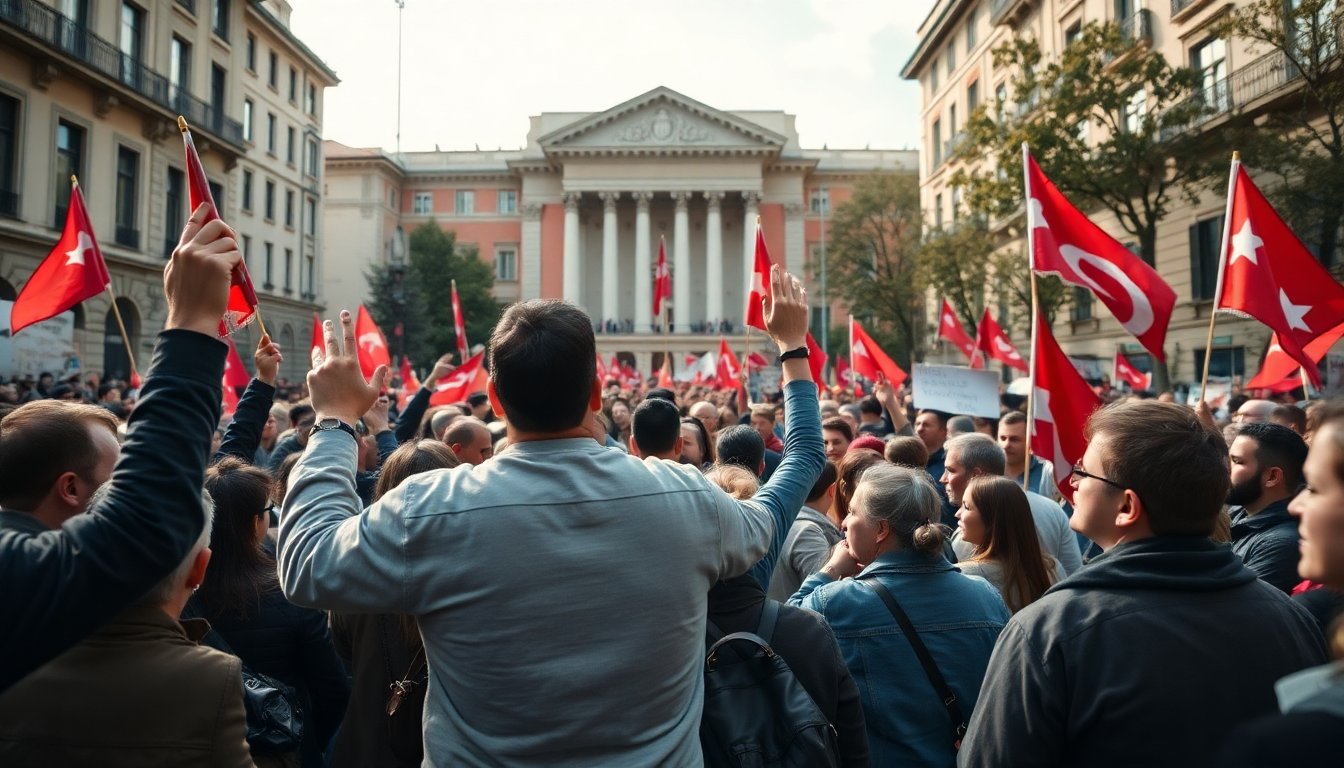Table of Contents
The political landscape in Georgia has become increasingly volatile following local elections that saw the ruling party, Georgian Dream, achieve a sweeping victory. However, this outcome has been marred by allegations of electoral misconduct and has ignited widespread protests across the nation. Prime Minister Irakli Kobakhidze has announced a firm response to these demonstrations, asserting that accountability will be enforced at all levels.
As the dust settles from the elections held on Saturday, the implications of the ruling party’s success are beginning to unfold. The results, which have been challenged due to concerns over the transparency of the electoral process, have led to significant unrest. This turmoil is set against a backdrop of political strife following the 2024 national elections, during which accusations of vote tampering were rampant, intensifying conflict between the government and opposition factions.
Protests and government response
In response to the electoral outcome, large-scale protests erupted on Saturday, with demonstrators targeting the presidential palace in a powerful display of dissent. These protests, framed as a pro-democracy movement, saw many citizens expressing their frustration with the current administration’s tactics. In a show of force, police used tear gas and water cannons to disperse the crowds, highlighting the government’s readiness to quell unrest.
Escalation of tensions
Prime Minister Kobakhidze, addressing the nation, made it clear that the government would not tolerate what he termed attempts to disrupt the constitutional order. He emphasized that those involved in the protests would face consequences, stating, “No one will escape responsibility.” His remarks reflect the administration’s determination to maintain control amidst rising tensions.
Controversy surrounding election integrity
The municipal elections, which resulted in a comprehensive victory for Georgian Dream across all 64 municipalities, have been plagued by accusations regarding their legitimacy. Critics point to a lack of independent oversight during the voting process, raising questions about the integrity of the outcomes. Prior to the elections, numerous opposition activists and critics were detained, a move perceived by many as an attempt to suppress dissent and manipulate the political climate.
International implications and accusations
Amidst the chaos, Prime Minister Kobakhidze has turned his ire towards the EU envoy to Georgia, Paweł Herczyński, accusing him of meddling in the nation’s internal affairs. He demanded that Herczyński publicly distance himself from the ongoing protests and condemned the actions taking place in the capital, Tbilisi. This accusation signifies a broader concern regarding foreign influence in national politics, as the ruling party seeks to assert its sovereignty against external pressures.
The relationship between Georgia and the European Union has already been strained, particularly after the ruling party halted discussions regarding EU accession shortly after the contested 2024 elections. This decision prompted a wave of protests, leading to mass arrests as the government sought to maintain order. The Prime Minister’s remarks suggest a continued resistance to outside intervention, framing the protests as an orchestrated attempt to undermine Georgia’s governance.
As Georgia navigates this tumultuous period, the repercussions of the local elections and subsequent protests remain uncertain. The government’s crackdown on dissent, combined with accusations of electoral fraud, has created a charged atmosphere that threatens to escalate further. With the Prime Minister firmly positioning himself against both domestic opposition and international scrutiny, the path forward for Georgia’s political landscape will be closely watched by both supporters and critics alike.


